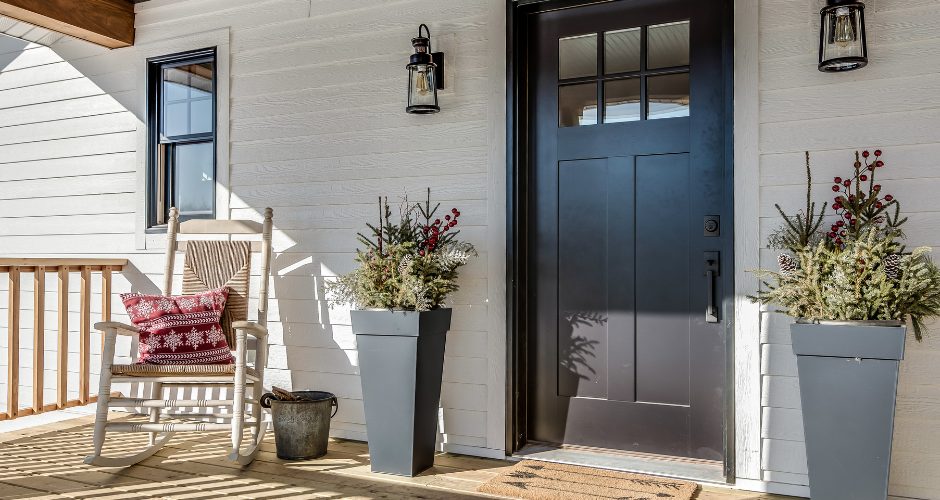Tips for Creating a Stellar Home Office Setup

Creating an inspiring and functional home office space is key to maximizing productivity and well-being. Whether you’re an entrepreneur, freelancer, or a remote employee, your workspace plays a significant role in your daily success. So, let’s dive into some expert tips to craft a home office setup that will make you excited to tackle each workday.
Location, Location, Location
Choose a spot in your home with ample natural light and minimal distractions. A room with a door that can be closed is ideal for privacy and concentration. Consider proximity to amenities like a bathroom or kitchen to minimize interruptions during your work hours.
Ergonomics Matter
Invest in a comfortable chair and an ergonomic desk that promotes good posture. Your desk should be at a height that allows your elbows to rest comfortably at a 90-degree angle while typing. A supportive chair with adjustable height and lumbar support will reduce strain on your back and neck during long hours of sitting.
Declutter for Focus
A cluttered space leads to a cluttered mind. Keep your home office organized by utilizing storage solutions like shelves, cabinets, and desk organizers. Clear surfaces of unnecessary items to minimize distractions and create a clean, calming environment conducive to productivity.
Personalize Your Space
Infuse your personality into your home office decor to make the space uniquely yours. Hang inspiring artwork, display cherished photos, or incorporate plants for a touch of greenery. Surrounding yourself with items that bring you joy can boost morale and motivation throughout the workday.
Tech Upgrades
Invest in reliable technology that enhances your workflow. Ensure high-speed internet connectivity, invest in a quality monitor, keyboard, and mouse, and consider noise-canceling headphones for virtual meetings. Upgrading your tech arsenal will streamline your tasks and minimize frustrations.
Lighting Matters
Optimize your lighting setup to reduce eye strain and boost productivity. Position your desk perpendicular to windows to maximize natural light without causing glare on your screen. Supplement with task lighting like desk lamps to illuminate your workspace during darker hours.
Create Boundaries
Establish clear boundaries between your work and personal life to maintain balance and prevent burnout. Set designated work hours and stick to them, and resist the temptation to check emails outside of those times. When you step away from your home office, make a conscious effort to disconnect and recharge.
Final Thoughts on Home Offices

By implementing these tips, you’ll transform your home office into a sanctuary of productivity and inspiration. Remember, your workspace should adapt to your needs and preferences, so don’t hesitate to experiment and make adjustments until you find what works best for you. Here’s to creating a home office setup that fuels your success and enhances your work-life balance!
Looking to buy, sell, or invest? As your REALTOR®, I’ll guide you every step of the way. Contact me today and let’s turn your real estate dreams into reality!
For more information, contact:
Susan Moffat, REALTOR® with Century 21 In-Studio Realty Inc., Brokerage
519.377.5154
susan.moffat@c21.ca
Winter Curb Appeal: Proven Strategies to Attract Buyers

Winter doesn’t mean your home’s exterior has to look dull and uninviting. In fact, with the right strategies, you can make your property stand out and attract potential buyers even during the coldest months of the year.
Why Winter Curb Appeal Matters
Did you know that more than 25% of home sales occur during the winter months of January, February, and March? This means your home’s exterior is crucial in making a lasting first impression. Statistics show that 75% of home shoppers want a home’s exterior to look impeccable, with many citing it as the primary reason to buy or not buy a home. Try employing these top strategies:
Lighting is Key
Create a magical winter ambiance with strategic outdoor lighting. Use subtle, warm-toned lights along driveways and walkways to create a welcoming glow. Solar-powered or LED lights can add charm without increasing your energy bills.
Keep It Clean and Clear
Maintain a neat exterior by:
- Clearing snow and ice from driveways and walkways
- Avoiding unsightly snow piles
- Ensuring address numbers are visible
- Using salt to manage ice accumulation
Add Winter Greenery
Even without summer flowers, you can bring life to your exterior:
- Use potted evergreens
- Install winter wreaths
- Consider plants like Blue Point Juniper or Green Mountain Boxwood
Make Your Front Door Pop
A fresh coat of paint can work wonders. Bold colours look especially striking against a white winter backdrop. Pro tip: Choose colours that complement your home’s exterior palette.
Highlight Architectural Features
Use lighting and subtle decorations to showcase unique architectural elements. This creates visual interest and makes your home memorable.
Final Thoughts on Winter Curb Appeal

Investing in winter curb appeal can significantly impact your home’s marketability. Real estate experts agree that excellent curb appeal can help your home sell faster and for more money. Remember, buyers looking during winter months are serious about purchasing. Make your home stand out and create a warm, inviting first impression that says “Welcome Home!”
Looking to buy, sell, or invest? As your REALTOR®, I’ll guide you every step of the way. Contact me today and let’s turn your real estate dreams into reality!
For more information, contact:
Susan Moffat, REALTOR® with Century 21 In-Studio Realty Inc., Brokerage
519.377.5154
susan.moffat@c21.ca
Should You Worry about Competing Listings?

Imagine this: You’re finally ready to list your home for sale, but just as you’re about to put up the sign, you notice several other “FOR SALE” signs popping up in your neighbourhood. Should you panic? Not necessarily.
The Reality of Competition
Competing listings don’t automatically mean you should put your selling plans on hold. In fact, multiple listings in your area could indicate a hot market with high demand. Even in a scenario with increased local listings, the number of active buyers might still outweigh the available properties, potentially leading to multiple interested parties for your home.
Market Dynamics
Seller’s Market
In a seller’s market, where demand exceeds supply, your property could still attract significant interest despite the competition. This scenario often leads to bidding wars, potentially driving up your final sale price.
Buyer’s Market
Even in a buyer’s market, this might be the ideal time to sell, especially if your home has desirable features that set it apart from the competition. Your property’s unique attributes could give you an advantage over other listings.
Effective Marketing: Your Secret Weapon
A large part of a successful sale lies in how a property is marketed and promoted. With effective marketing strategies, your home is more likely to catch the eye of the right buyers – those actively seeking a property like yours. Consider working with a REALTOR® (like myself!) that will use these marketing tactics:
- Utilize professional photography and virtual tours
- Leverage social media platforms for wider reach
- Craft compelling property descriptions
- Implement targeted online advertising
The Importance of Timing
Waiting for the “perfect” moment to sell your home rarely makes sense. Market conditions are always fluctuating, and there’s no guarantee that waiting will lead to better circumstances. In most cases, the best time to list is now, especially if you’re ready and your personal circumstances align with selling.
Final Thoughts on Competing Listings

Don’t let competing listings deter you from your selling goals. With the right strategy, effective marketing, and a focus on your home’s unique selling points, you can successfully navigate a competitive market. Remember, your home’s value isn’t solely determined by what’s happening in your neighbourhood – it’s about finding the right buyer who appreciates what your property has to offer.
Looking to buy, sell, or invest? As your REALTOR®, I’ll guide you every step of the way. Contact me today and let’s turn your real estate dreams into reality!
For more information, contact:
Susan Moffat, REALTOR® with Century 21 In-Studio Realty Inc., Brokerage
519.377.5154
susan.moffat@c21.ca
Grey Bruce MLS® Home Sales Surge in 2024

OnePoint Association of REALTORS® – Grey Bruce and Owen Sound MLS® home sales surge in 2024.
The number of homes sold in Grey Bruce and Owen Sound via the MLS® System of the OnePoint Association of REALTORS® totaled 116 units in December 2024. This was a jump of 81.3% from December 2023. Home sales were 13.7% above the five-year average and 4.6% below the 10-year average for the month of December. On an annual basis, home sales totaled 2,478 units over the course of 2024. This was a substantial gain of 41.1% from 2023.
“Sales activity marked a rapid and significant recovery throughout 2024, boosting annual totals well above where they stood in the previous two years and nearly getting back on par with 2021,” said Bonnie Looby, President of the OnePoint Association of REALTORS®. “An exceptional increase in activity was spurred by a resurgence in new listings, with motivated sellers responding in force to renewed optimism from buyers who were gradually easing back into the market. Although the local market is at present close to buyer’s territory with above-average levels of supply, momentum is moving in the right direction and we are looking ahead to a more active spring market.”
The MLS® Home Price Index (HPI) tracks price trends far more accurately than is possible using average or median price measures. The overall MLS® HPI composite benchmark price was $569,200 in December 2024, a modest gain of 2.9% compared to December 2023.
The benchmark price for single-family homes was $577,500, up modestly by 3% on a year-over-year basis in December. By comparison, the benchmark price for townhouse/row units was $478,500, essentially unchanged, down just 0.7% compared to a year earlier, while the benchmark apartment price was $370,300, a small gain of 1.6% from year-ago levels.
The average price of homes sold in December 2024 was $632,284, a decline of 5.7% from December 2023. The more comprehensive annual average price was $652,448, nearly unchanged, up only 0.9% from all of 2023. The dollar value of all home sales in December 2024 was $73.3 million, a substantial increase of 71% from the same month in 2023.
The number of new listings saw a jump of 75.2% from December 2023. There were 177 new residential listings in December 2024. This was the largest number of new listings added in the month of December in more than a decade. New listings were 62.4% above the five-year average and 52.1% above the 10-year average for the month of December.
Active residential listings numbered 1,055 units on the market at the end of December, a substantial gain of 49.2% from the end of December 2023. Active listings haven’t been this high in the month of December in more than five years. Active listings were 84.6% above the five-year average and 58.4% above the 10-year average for the month of December.
Months of inventory numbered 9.1 at the end of December 2024, down from the 11 months recorded at the end of December 2023 and above the long-run average of 5.9 months for this time of year. The number of months of inventory is the number of months it would take to sell current inventories at the current rate of sales activity.
* Statistics in this report are subject to revision due to a recent migration to a new MLS® system.
Board & Association Information
OnePoint Association of REALTORS® serves as a unified body representing almost 3,000 real estate professionals across the regions of Huron, Perth, Grey, Bruce, Wellington, Georgian Bay, Simcoe, Parry Sound, Haliburton and Muskoka.
Wondering how these numbers might impact your real estate plans? Whether you’re buying, selling, or just curious about market trends, I’ve got you covered! Let’s navigate the market together! Contact me for a complimentary, no-obligation property valuation!
For more information, contact:
Susan Moffat, REALTOR® with Century 21 In-Studio Realty Inc., Brokerage
519.377.5154
susan.moffat@c21.ca
Bank of Canada Reduces Policy Rate to 3%

The Bank of Canada (BoC) has made a significant move in its monetary policy, reducing its key interest rate and announcing the end of quantitative tightening. This decision, announced on January 29, 2025, has important implications for the Canadian economy and individual Canadians. Let’s break down the key points and their potential impact.
The Rate Cut
The BoC has reduced its target for the overnight rate to 3%, with the Bank Rate at 3.25% and the deposit rate at 2.95%. This 25 basis point cut is a clear signal that the central bank is taking action to support economic growth.
End of Quantitative Tightening
In addition to the rate cut, the BoC is ending its quantitative tightening program. They plan to restart asset purchases in early March, allowing their balance sheet to stabilize and then grow modestly in line with economic growth. This move is aimed at providing further support to the economy by increasing liquidity in the financial system.
Economic Outlook
The Bank of Canada’s decision is based on several key economic factors:
- Past interest rate cuts have started to boost the Canadian economy, with recent strengthening in both consumption and housing activity expected to continue. However, business investment remains weak.
- GDP growth is forecast to strengthen in 2025. The Bank projects GDP will grow by 1.8% in both 2025 and 2026, which is somewhat higher than potential growth. This is despite slower population growth due to reduced immigration targets.
- Inflation remains close to the 2% target, with some volatility. The Bank expects CPI inflation to stay around the 2% target over the next two years.
Potential Impacts
For Canadians, this rate cut could have several implications:
- Lower borrowing costs: Mortgages, lines of credit, and other loans may become more affordable.
- Increased economic activity: Lower interest rates are expected to boost household spending and gradually strengthen the economy.
- Currency effects: The Canadian dollar has already depreciated against the US dollar, largely due to trade uncertainty and broader strength in the US currency. This trend may continue, affecting import prices and travel costs.
Risks and Uncertainties
While the BoC’s move is generally positive for economic growth, there are some risks to consider:
- The Bank notes that projections are subject to more-than-usual uncertainty due to the rapidly evolving policy landscape, particularly the threat of trade tariffs by the new administration in the United States.
- A protracted trade conflict could lead to weaker GDP and higher prices in Canada. If broad-based and significant tariffs were imposed, it would test the resilience of Canada’s economy.
What’s Next?
The Bank of Canada’s next rate announcement is scheduled for March 12, 2025. Follow my page for more real estate news and information!
Final Thoughts on the Bank of Canada’s Decision
The Bank of Canada’s decision to cut rates and end quantitative tightening reflects its commitment to supporting economic growth while maintaining price stability. The Bank will continue to closely monitor developments and assess their implications for economic activity, inflation, and monetary policy in Canada. For Canadians, this may present opportunities in terms of borrowing and investment, but it’s also a reminder to stay informed about economic developments and how they might affect personal financial decisions.
Read the Press Release.
Whether you’re a homeowner, prospective buyer, or real estate investor, understanding these market changes is crucial. As your trusted REALTOR®, I’m here to help you navigate these shifts and make informed decisions! Call, text, email, or DM me to chat about how this announcement affects your real estate plans!
For more information, contact:
Susan Moffat, REALTOR® with Century 21 In-Studio Realty Inc., Brokerage
519.377.5154
susan.moffat@c21.ca

 Facebook
Facebook
 X
X
 Pinterest
Pinterest
 Copy Link
Copy Link






